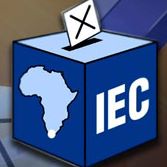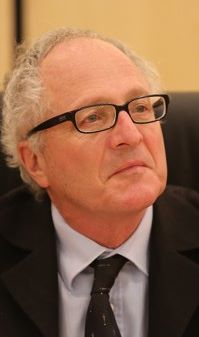Lifestyle/Community
Johannesburg to be a ‘keenly contested’ poll
Having kicked off in second place to the ruling ANC majority of over 55% in the Joburg City Council, the DA overtook the ruling party four weeks ago in the polls. But the huge “undecided” electorate can cause an upset at the last minute. Johannesburg is turning out to be one of the hottest political battlegrounds for municipal elections as political parties bring out the big guns to fight for every extra vote they can next Wednesday. The polls had the DA extending its lead by a further one-and-a-half percentage points last week.

ANT KATZ
Johannesburg is turning out to be one of the hottest political battlegrounds for municipal elections as political parties bring out the big guns to fight for every extra vote they can next Wednesday.
The polls had the Democratic Alliance (DA) extending its lead in the Johannesburg metropole by a further one-and-a-half percentage points last week (week seven).
Having kicked off in second place to the ruling African National Congress (ANC), which currently holds a majority in excess of 55 per cent in the City Council, the DA overtook the ruling party in the third week of polling. But of course politics is not an exact science and with a huge “undecided” electorate of some 14 per cent, the pendulum can swing any old way.

RIGHT: Veteran ANC Johannesburg Jewish politician, Sol Cowan, served on the TRC and is a four-term City Councillor
Over 1 500 registered voters are polled on Mondays and Tuesdays every week and the results compiled and released on Thursdays.
Interestingly, tracking the polls has shown that the high percentage of “undecideds” is falling as polling day gets nearer, with the DA picking up a healthy dollop of those votes. The ANC and the Economic Freedom Fighters (EFF) – a dark horse which may be a “kingmaker” – can be seen to have some high weeks and some lower ones – but generally their support is flat-lining.
At this stage all three metros have the DA in the lead, but with all three clearly showing that coalitions are likely as no party seems set to attract a simple majority of 50 per cent plus one. The support for the smaller parties is not reflected.
As always, the Jewish community plays its part in the political process. Among those up for re-election in Johannesburg are the ANC’s Solomon (Solly) Cowan, a four-term councillor in Ward 74 (and who served on the transitional council prior to the first democratic municipal election in 2000); and Joy Coplan (ANC), who has served as a Proportional Representation (PR) councillor since 2006 and is now standing as a ward councillor in Ward 90 (Hyde Park area).
Cowan has served on the Mayoral Committee (inner city portfolio), in the formation of the Johannesburg Development Agency (JDA) and chaired two section 79 committees. Since 2011 he has chaired both the Ethics and the Public Accounts committees.
Among the DA Jewish candidates are Ward 72’s incumbent Steven Kruger and Tyrell Meyers in Ward 126 (Southern Suburbs). Meyers, together with Josh Apfel and John Mendelsohn, are placed high on the DA’s PR list.
Smaller parties strategically allow candidates to stand in multiple wards – which gives them more PR votes even if they win no ward seats. An example of a Jewish candidate in this position is Sidney Anolik who is standing in close to 10 wards on the Freedom Front ticket.
Another is the Congress of the People (Cope) Gauteng provincial spokesman Bradley Goodson, the party’s Midvaal mayoral candidate who is also standing in three wards.
Cope “recognises both Israel and Palestine’s rights to live in peace in safe and security borders”, party leader Mosiuoa Lekota who visited the countries last year, said. He had come back “with a totally different view”. Cope is also fielding Joshua Trapedo as a ward councillor.
Where the Jews are…
There are 10 (of a total of 150) Johannesburg wards where the Jewish vote is considered substantial (with partial description in brackets):
Ward 72 (Orange Grove to Glenhazel), 73 (Norwood, Killarney), 74 (Gresswold), 81 (Kew), 91 (Athol, Inanda),109 (Wendywood, Gallo Manor), 117 (Saxonwold), 88 (Emmarentia, Northcliff), 87(Greenside, Victory Park) and 103 (Sandown, Morningside).
While the Demarcation Board made substantial changes to ward boundaries since the last municipal elections, they have minimal effect on wards 74 and 81.
The statistics of a Johannesburg voter…
The Johannesburg metro is broken up into 150 wards, with a registered population of 4 434 827 in 2011 but has grown considerably since. The racial breakdown in 2011 was black African, 76,4 per cent; white, 12,3 per cent; Coloured, 5,6 per cent; and Indian/Asian, 4,9 per cent.
The City is so cosmopolitan that, of the five most spoken home languages in 2011, “other” came in first at 39,2 per cent, followed by Zulu at 23,4 per cent; English at 20,1 per cent; Sotho at 9,6 per cent; and Tswana at 7,7 per cent.